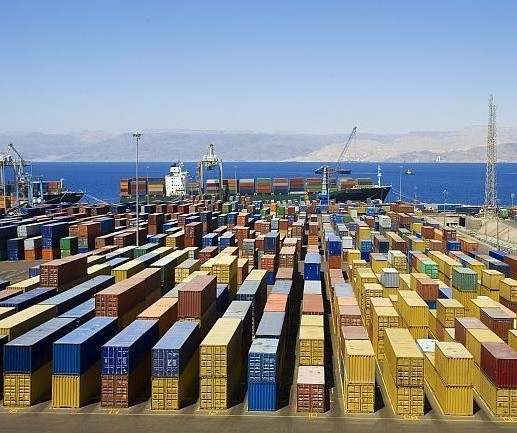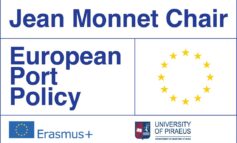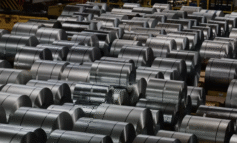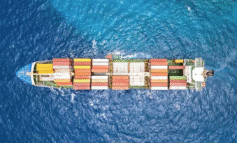Seagoing and river maritime transportation systems of Romania stand as inextricable forces in driving and serving the changing structures of the Romanian economy in the post-1989 era. The transport sector itself has also been subject to major reforms. All different modes including the state owned maritime service providers have been reorganised in order to meet the doctrines of entrepreneurship development and market liberalisation that became the dominant form of the economy.
The port of Constantza, and the alteration of its governance structures and services over the last 25 years stand as a most illustrative example of how this ‘driving and serving’ evolved. This is not least because the port of the major coastal city of Romania is the only major port of the country, linking Romania with the Black Sea and providing commercial links to the outer world.
The latest port study of Thanos Pallis and Aimilia Papachristou addresses the changing port governance models that commenced in the early 1990s and the subsequent changes, detailing the evolved setting and its implications for the city of Constantza.
The analysis follows the ‘matching framework’ concept[1], and the associated port governance conceptualisations that have been applied by scholars searching an understanding of the wave of port reforms that took place in several regions of the world since the early 1990s[2], but have yet to be used in understanding the changing port systems in the Black Sea.
Grounding on three streams of research (strategic management, organisation theory, and configuration theory), the matching framework concept stresses the importance of the configuration of the environment-strategy-structure relationship triangle in defining the prospects of port governance regimes. Arguing against the superiority of a configuration over the others, the importance is assigned on the alignment of the different elements of the frameworks in place. Studies of port devolution programmes conclude that successes and deficiencies in port performance are the by-products of inconsistency between the characteristics and requirements of the environment on the one side, and the strategy and structures on the other.[3] Configurations marked by a highly uncertain environment, are best linked with customers satisfaction oriented strategies and an organic structure of decentralised decision-making characterised by continuous adjustments.
Reflecting this approach, the analysis of port governance in Constantza examines the emerging economic context, the structures of the port that have been endorsed, and the strategy followed by the key actors (i.e. port authority and terminal operators). These three dimensions enable to conclude on whether the specifics of port development the last 25 years have responded to a matching framework configuration.
Exploring how the port moved from a socialist state-owned organisation to a different model details that this movement facilitated the port to serve the port-city of Constantza and to fuel the dynamics of the local and national economy. At the same time it documents that these changes transformed it to the major container port in the Black Sea. A flow of investments facilitated the embeddedness in supply chains serving the Black Sea and the upstream Danube river transportation, while at the same time resulted in the usage of the port for transhipment and, thus enabled its integration in broader global transportation systems.
These findings reveal a process of ‘globalisation’. The reforms of port governance, and the subsequent introduction of global terminal operators in the provision of port services and operation of container terminals have enabled the port to increasingly play a key role in the maritime and landside transportation of cargoes moving at regional scale or distributed globally. In turn, globalisation has its own impact, leading to an interpenetration of the local and global scales. With the process of port modernisation continuing, this is a ‘glocalisation’ process in progress.
The port study of Thanos Pallis and Aimilia Papachristou is included in: Athanasios A. Pallis, Ioannis N. Theotokas, Maria Lekakou (eds), Black Sea Ports, Shipping and Cities in Modern Times. From Central Planning to Reintegration in the Global Economy, Black Sea Project Working Papers, Vol. 9, 2016. The volume has been published within the interdisciplinary and inter-university project “The Black Sea and its port-cities, 1774-1914. Development, convergence and linkages with the global economy” (www.blacksea.gr).
Download the authors’ version of the book chapter here.
—————
[1] Baltazar, R. and Brooks, M.R. (2006). Port Governance, Devolution and the Matching Framework: A Configuration Theory Approach, Research in Transportation Economics, 17, pp. 379-403.
[2] Notteboom, T. and Winkelmans, W. (2001). Reassessing public sector involvement in European seaports, Maritime Economics and Logistics, 3(2), pp. 242-259; Brooks M.R. and Pallis A.A. (2012). Port Governance. In: Talley W.K. (ed.). Maritime Economics – A Blackwell Companion. Blackwell, pp. 232-267; Brooks, M.R. and Cullinane, K. (Eds.) (2007). Devolution, Port Governance and Port Performance (Elsevier, London); Brooks, M. R. and Pallis, A.A. (ed.) (2013). Advances in port performance and strategy, Research in Transportation Business and Management, 8.
[3] Brooks, M.R. and Cullinane, K. (2007). Governance models defined, in: Brooks, M.R., Cullinane, K. (Eds.) (2007), op.cit. pp.417-444; Brooks, M.R. and Pallis, A.A. (2008). Assessing port governance models: process and performance components, Maritime Policy & Management, 35(4), pp. 411–432.












